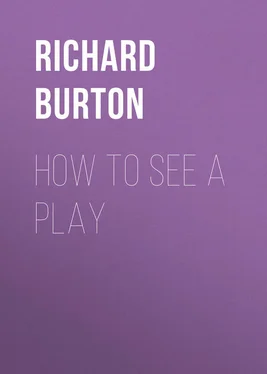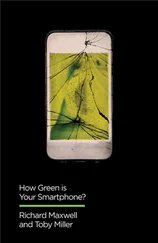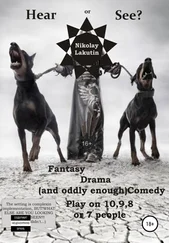Richard Burton - How to See a Play
Здесь есть возможность читать онлайн «Richard Burton - How to See a Play» — ознакомительный отрывок электронной книги совершенно бесплатно, а после прочтения отрывка купить полную версию. В некоторых случаях можно слушать аудио, скачать через торрент в формате fb2 и присутствует краткое содержание. ISBN: , Жанр: foreign_antique, foreign_prose, foreign_dramaturgy, на английском языке. Описание произведения, (предисловие) а так же отзывы посетителей доступны на портале библиотеки ЛибКат.
- Название:How to See a Play
- Автор:
- Жанр:
- Год:неизвестен
- ISBN:http://www.gutenberg.org/ebooks/32433
- Рейтинг книги:5 / 5. Голосов: 1
-
Избранное:Добавить в избранное
- Отзывы:
-
Ваша оценка:
- 100
- 1
- 2
- 3
- 4
- 5
How to See a Play: краткое содержание, описание и аннотация
Предлагаем к чтению аннотацию, описание, краткое содержание или предисловие (зависит от того, что написал сам автор книги «How to See a Play»). Если вы не нашли необходимую информацию о книге — напишите в комментариях, мы постараемся отыскать её.
How to See a Play — читать онлайн ознакомительный отрывок
Ниже представлен текст книги, разбитый по страницам. Система сохранения места последней прочитанной страницы, позволяет с удобством читать онлайн бесплатно книгу «How to See a Play», без необходимости каждый раз заново искать на чём Вы остановились. Поставьте закладку, и сможете в любой момент перейти на страницу, на которой закончили чтение.
Интервал:
Закладка:
And this idea has grown along with the now very evident re-birth of a drama which, while practical stage material, has taken on the literary graces and makes so strong an appeal as literature that much of our best in letters is now in dramatic form: the play being the most notable contribution, after the novel, of our time. Leading writers everywhere are practical dramatists; men of letters, yet also men of the theater, who write plays not only to be read but to be acted, and who have conquered the difficult technic of the drama so as to kill two birds with the one stone.
The student of historical drama will perceive that this welcome change is but a return to earlier and better conditions when the mighty play-makers of the past – Calderón, Molière, Shakespeare and their compeers – were also makers of literature which we still read with delight. And, without referring to the past, a glance at foreign lands will reveal the fact that other countries, if not our own, have always recognized this cultural value of the stage and hence given the theater importance in the civic or national life, often spending public moneys for its maintenance and using it (often in close association with music) as a central factor in national culture. The traveler to-day in Germany, France, Russia and the Scandinavian lands cannot but be impressed with this fact, and will bring home to America some suggestive lessons for patriotic native appreciation. In the modern educational scheme, then, room should be made for some training in intelligent play-going. So far from there being anything Quixotic in the notion, all the signs are in its favor. The feeling is spreading fast that school and college must include theater culture in the curriculum and people at large are seeking to know something of the significance of the theater in its long evolution from its birth to the present, of the history of the drama itself, of the nature of a play regarded as a work of art; of the specific values, too, of the related art of the actor who alone makes the drama vital; and of the relative excellencies, in the actual playhouses of our time, of plays, players and playwrights; together with some idea of the rapidly changing present-day conditions. Such changes include the coming of the one-act play, the startling development of the moving picture, the growth of the Little Theater, the rise of the masque and pageant, and so on with other manifestations yet. Surely, some knowledge in a field so broad and humanly appealing, both for legitimate enjoyment of the individual and in view of his obligations to fellow man, is of equal moment to a knowledge of the chemical effect of hydrochloric acid upon marble, or of the working of a table of logarithms. These last are less involved in the living of a normal human being.
Here are signs of the time, which mark a revolution in thought. In the light of such facts, it is curious to reflect upon the neglect of the theater hitherto for centuries as an institution and the refusal to think of the play as worthy until it was offered upon the printed page. The very fact that it was exhibited on the stage seemed to stamp it as below serious consideration. And that, too, when the very word play implies that it is something to be played. The taking over of the theaters by uneducated persons to whom such a place was, like a department store, simply an emporium of desired commodities, together with the Puritanic feeling that the playhouse, as such, was an evil thing frowned upon by God and injurious to man, combined to set this form of entertainment in ill repute. Bernard Shaw, in that brilliant little play, The Dark Lady of the Sonnets , sets certain shrewd words in the mouths of Shakespeare and Queen Elizabeth pertinent to this thought:
Shakespeare: "Of late, as you know, the Church taught the people by means of plays; but the people flocked only to such as were full of superstitious miracles and bloody martyrdoms; and so the Church, which also was just then brought into straits by the policy of your royal father, did abandon and discountenance playing; and thus it fell into the hands of poor players and greedy merchants that had their pockets to look to and not the greatness of your kingdom."
Elizabeth: "Master Shakespeare, you speak sooth; I cannot in anywise amend it. I dare not offend my unruly Puritans by making so lewd a place as the playhouse a public charge; and there be a thousand things to be done in this London of mine before your poetry can have its penny from the general purse. I tell thee, Master Will, it will be three hundred years before my subjects learn that man cannot live by bread alone, but by every word that cometh from the mouth of those whom God inspires."
The height of the incongruous absurdity was illustrated in the former teaching of Shakespeare. Here was a writer incessantly hailed as the master poet of the race; he bulked large in school and college, perforce. Yet the teacher was confronted by the embarrassing fact that Shakespeare was also an actor: a profession given over to the sons of Belial; and a playwright who actually wrote his immortal poetry in the shape of theater plays. This was sad, indeed! The result was that in both the older teaching and academic criticism emphasis was always placed upon Shakespeare the poet, the great mind; and Shakespeare the playwright was hardly explained at all; or if explained the illumination was more like darkness visible, because those in the seats of judgment were so ignorant of play technic and the requirements of the theater as to make their attempts well-nigh useless. It remained for our own time and scholars like George P. Baker and Brander Matthews, with intelligent, sympathetic comprehension of the play as a form of art and the playhouse as conditioning it, to study the Stratford bard primarily as playwright and so give us a new and more accurate portrait of him as man and creative worker.
I hope it is beginning to be apparent that intelligent play-going starts long before one goes to the theater. It means, for one thing, some acquaintance with the history of drama, and the theater which is its home, both in the development of English culture and that of other important nations whose dramatic contribution has been large. This aspect of culture will be enlarged upon in the following chapters.
Much can be done – far more than has been done – in this historical survey in school and college to prepare American citizens for rational theater enjoyment. There is nothing pedantic in such preparation. Nobody objects to being sufficiently trained in art to distinguish a chromo from an oil masterpiece or to know the difference in music between a cheap organ-grinder jingle and the rhythmic marvels of a Chopin. It is equally foolish to be unable to give a reason for the preference for a play by Shaw or Barrie over the meaningless coarse farce by some stage hack. It is all in the day's culture and when once the idea that the theater is an art has been firmly seized and communicated to many all that seems bizarre in such a thought will disappear – and good riddance!
The first and fundamental duty to the theater is to attend the play worthy of patronage. If one be a theater-goer, yet has never taken the trouble to see a certain drama that adorns the playhouse, one is open to criticism. The abstention, when the chance was offered, must in fact either be a criticism of the play or of the person himself because he refrained from supporting it.
But let it be assumed that our theater-goer is in his seat, ready to do his part in the patronage of a good play. How, once there, shall he show the approval, or at least interest, his presence implies?
By making himself a part of the sympathetic psychology of the audience, as a whole; not resisting the effect by a position of intellectual aloofness natural to a human being burdened with the self-consciousness that he is a critic; but gladly recognizing the human and artistic qualities of the entertainment. Next, by giving external sign of this sympathetic approval by applause. Applause in this country generally means the clapping of the hands; only exceptionally, and in large cities, do we hear the bravos customary in Europe.
Читать дальшеИнтервал:
Закладка:
Похожие книги на «How to See a Play»
Представляем Вашему вниманию похожие книги на «How to See a Play» списком для выбора. Мы отобрали схожую по названию и смыслу литературу в надежде предоставить читателям больше вариантов отыскать новые, интересные, ещё непрочитанные произведения.
Обсуждение, отзывы о книге «How to See a Play» и просто собственные мнения читателей. Оставьте ваши комментарии, напишите, что Вы думаете о произведении, его смысле или главных героях. Укажите что конкретно понравилось, а что нет, и почему Вы так считаете.












